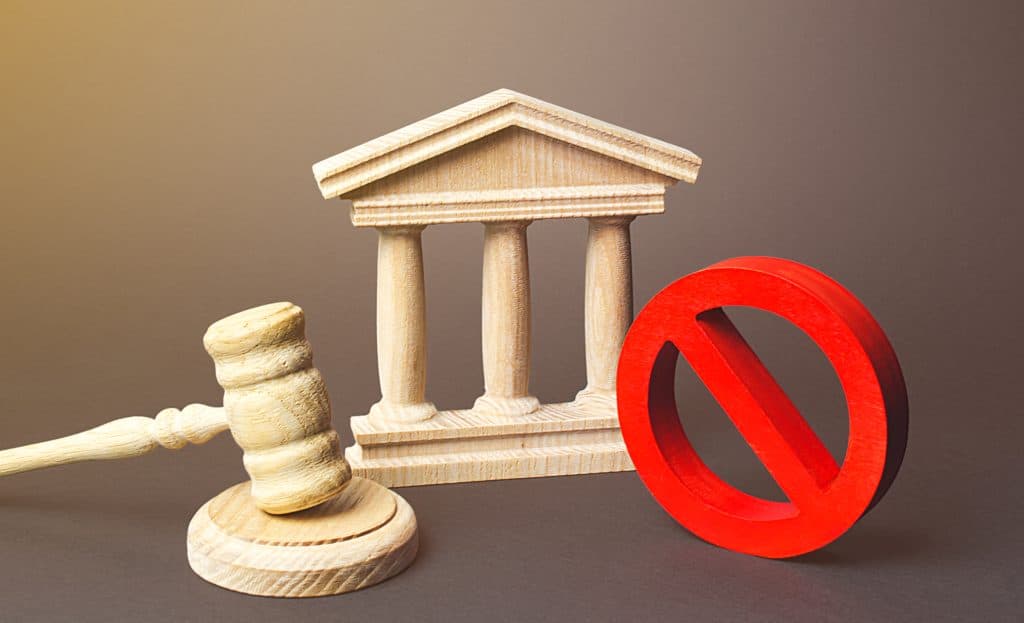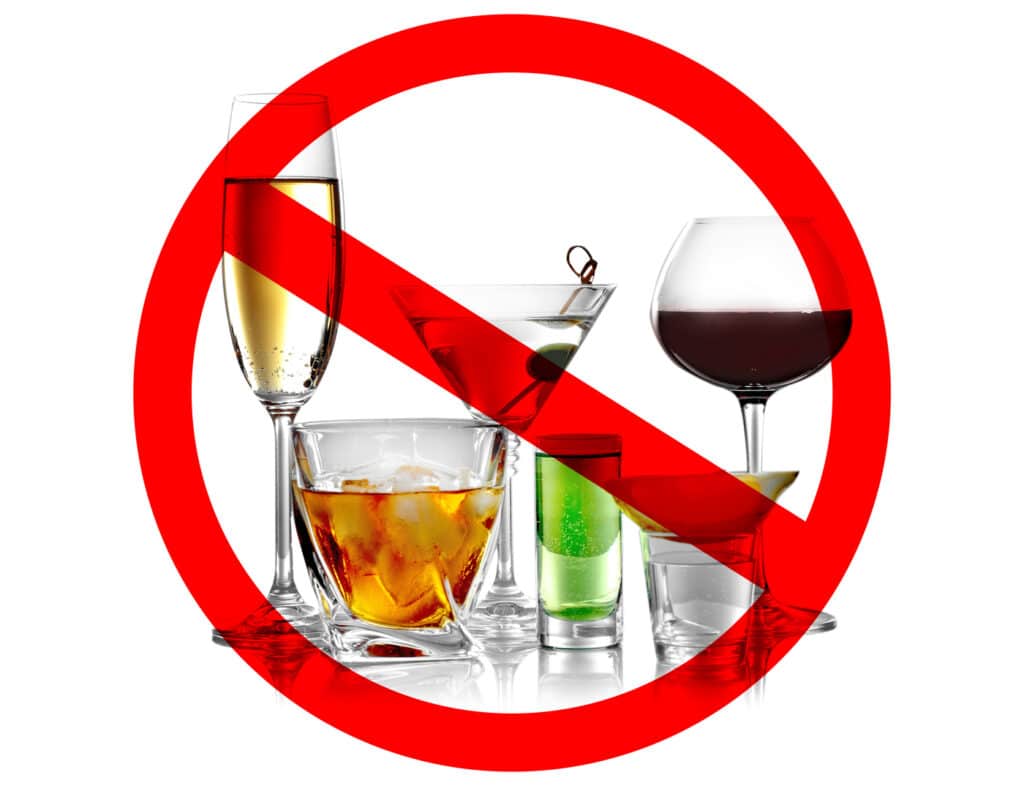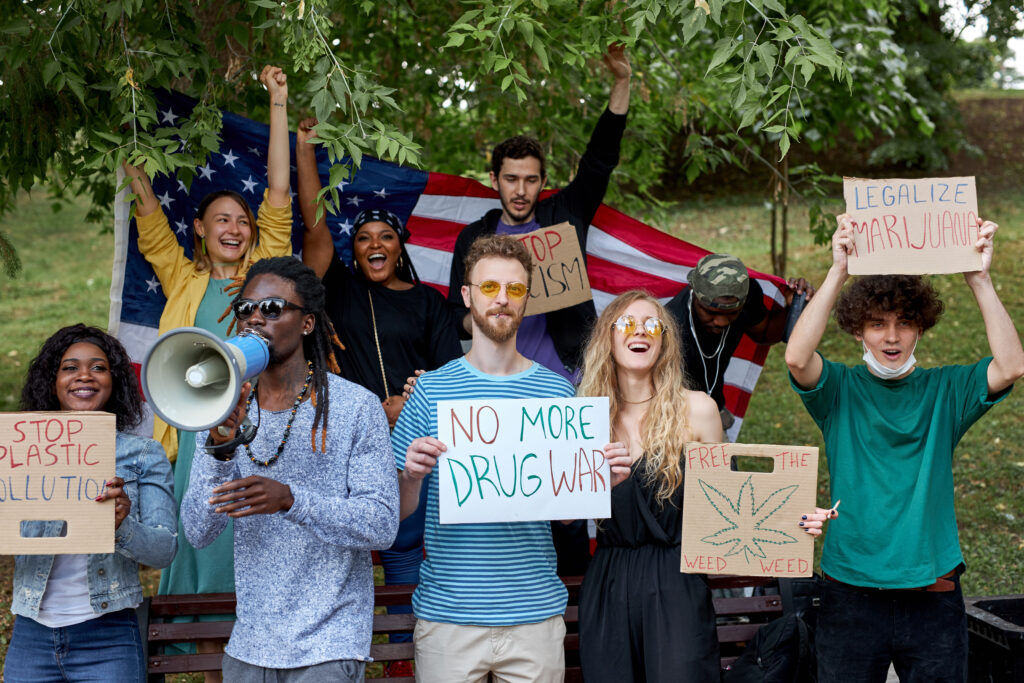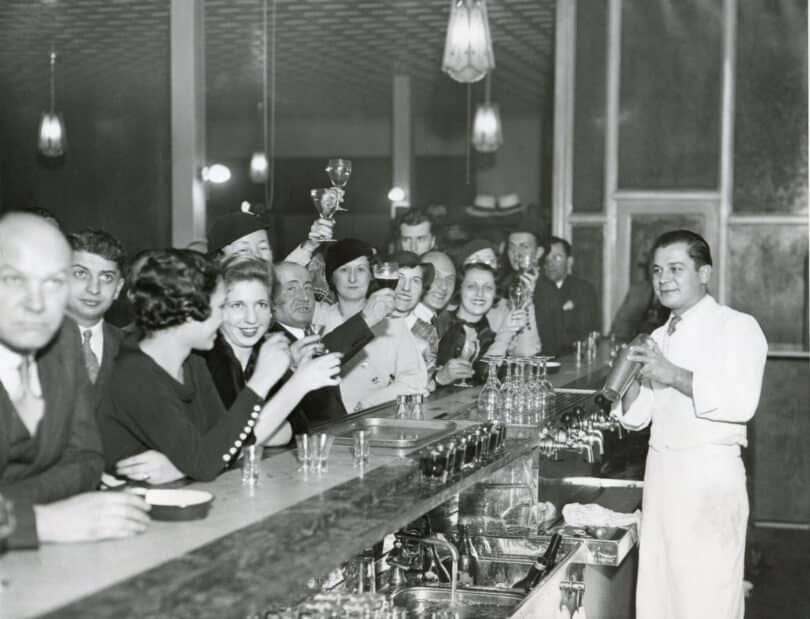Completely banning drugs, alcohol or any other substances might seem like the most sensical way of ridding a nation of an overuse problem, but has it actually ever worked?
Prohibition – defined as the act of forbidding something by law – has been a recurring strategy throughout history to curb perceived societal ills, from alcohol consumption to drug use. The intentions behind prohibition can sometimes stem from a desire to promote public health and safety, but it can also come from an attempt at stopping an uncontrolled market. We’re going to be delving into the complex history of prohibition, examining its successes, failures, consequences, and the ongoing debate surrounding it. Let’s do this.
What is Prohibition?
When people think of prohibition, their mind usually jumps to America’s decision to ban alcohol in the 1920s, which ended up failing pretty miserably. However, there have been many other examples of prohibition, and each has been brought about in varied ways. But what does it actually mean? Well, prohibition is a legal framework that aims to ban or restrict specific activities, substances, or behaviours. The effectiveness of prohibition varies depending on the context, the nature of the prohibited activity, and the level of public compliance. The ideal situation, from any law maker’s point of view, is that these bans will ultimately reduce the amount of people using the substance, dying from the substance and will shift the public’s view on the substance. Here’s a general overview of how prohibition typically works:
Legislation
Prohibition begins with the enactment of laws or regulations that explicitly forbid certain activities or the use of specific substances.
Education
To support the enforcement of prohibition laws, governments often invest in public awareness campaigns and educational initiatives. These efforts aim to inform the public about the prohibited activities, the associated risks, and the legal consequences.
Law Enforcement
Prohibition is often accompanied by punitive measures to deter individuals from engaging in these activities. Penalties may include fines or imprisonment.
Social Stigma
Prohibition also often relies on creating a social stigma around the prohibited activities. Public perception plays a crucial role in determining the success of prohibition, as individuals may be less likely to engage in prohibited behaviour if it is socially unacceptable or frowned upon. A good example of this is the War on Drugs, and the propaganda highlighting particular substances to be specifically dangerous.

The Reality
However, In reality, prohibition essentially makes certain substances illegal. This, as a result, makes anyone using them a criminal. Whilst law enforcement and governments may want to stop the substance from existing entirely, that is almost always impossible. Meaning that, in some cases, people continue to use these drugs but as criminals. This puts a great deal of pressure on police and the prison system. The Cato Institute writes:
“Proponents of drug prohibition claim that such policies reduce drug‐related crime, decrease drug‐related disease and overdose, and are an effective means of disrupting and dismantling organized criminal enterprises… We conclude that prohibition is not only ineffective, but counterproductive, at achieving the goals of policymakers both domestically and abroad.”
Whilst there have been many cases where drug prohibition has fallen flat on its face, many governments still utilise its methods. Why? To understand that, it will help to first take a look at some of the most famous examples of prohibition.
Prohibition Throughout History
Prohibition of Alcohol in the United States
Perhaps the most infamous example of prohibition is the era in the United States when the production, sale, and transportation of alcoholic beverages were banned from 1920 to 1933. If you’ve ever watched or read The Great Gatsby by Scott Fitzgerald then you’ll have seen the essence of this. The decision to ban alcohol was triggered by the temperance movement, which was fueled by concerns over the negative societal impacts of alcohol. This then led to the 18th Amendment and the Volstead Act. However, the “Noble Experiment” of alcohol prohibition ultimately proved to be a failure. The Econ Library writes:
“Of course, history tells us that Prohibition was nothing less than an epic failure. Not only did illegal alcohol consumption approximate pre-Prohibition levels, the quality control inherent in a legal, private marketplace did not exist, resulting in wide divergences in potency and quality.”
The prohibition gave rise to a thriving black market, speakeasies, and organised crime. The consumption of alcohol did not decrease significantly, and the negative consequences of illicit alcohol production and distribution far outweighed the perceived benefits. Those still drinking also became at risk to dodgy, unchecked alcohol. In 1932, the great depression was taking its toll on the USA and the potential tax that could be made from legally selling alcohol was apparent. Roosevelt consequently made it his campaign promise to legalise the substance and did so in 1933. This has since been used as a prime example why prohibition does not work.

Drug Prohibition: The War on Drugs
Then came, In the latter half of the 20th century, the war on drugs. Nixon, who became president of the US in 1969, launched this historic prohibition – a comprehensive and aggressive approach to combating drug use and trafficking. This initiative involved strict criminal penalties, aggressive law enforcement, and international cooperation. However, the impact of the War on Drugs has been highly controversial. Critics argue that it has disproportionately affected marginalised communities, resulted in mass incarceration, and failed to significantly reduce drug abuse rates. There has always been a mass rise in powerful drug cartels. Civil Rights writes:
“In the 40 years since President Richard Nixon declared war on drugs… repressive strategies focused on criminalization have not worked. “Arresting and incarcerating tens of millions of these people in recent decades has filled prisons and destroyed lives and families without reducing the availability of illicit drugs or the power of criminal organizations,”
Since Nixon’s aggressive anti-drug campaign, many nations have followed suit. The UK still to this day have shown no desire to show empathy towards drug users, or to alleviate their strict drug laws. As a result, people continue to use these substances and put severe pressure on law enforcement.
The Alternative to Prohibition
For a long time, banning drugs seems to have been the only real method of dealing with substance abuse. However, in recent years, more nations have decided to take a different approach. In the USA, 23 out of the 50 states have legalised cannabis entirely, with 38 of them allowing for medical use. In addition, the Netherlands, Malta, Luxembourg, Spain and Portugal have shown lenient approaches to cannabis use in their own way. These decisions have not led to an uncontrollable influx in weed smoking. Instead, some of these nations now have successful legal markets – with the Netherlands making around 400 million euros a year from weed taxation. Although, it would be biassed to not mention that the mayor of Amsterdam has admitted to their being drug tourist issues over the last few years. With many Brits – especially – causing unorderly behaviour on the streets. In other words, people using the nation as some sort of drug-legal paradise.
Harder Drugs
There is an issue, however, with harder drugs. Alcohol has proven to be the one of the biggest killers of any drug out there – with the World Health Organisation quoting an annual death toll of 3 million a year. However, as we’ve seen, alcohol is an important part of society, and banning it would probably result in a similar situation to the 1920s. But then what about harder drugs? Is there a more lenient way of dealing with them? As has been mentioned, drug use happens, regardless of whether the substance is legal or not. Prohibition does not seem to work in that sense. But does that mean that we should simply legalise all substances and see what happens? For a bit of devil’s advocacy, Rand Corporation wrote:
“Drug prohibition has not eliminated all drug use, but in the case of cocaine there is clear evidence that it has reduced use and reduced the costs society pays for drug use. While cocaine enforcement efforts, greatly increased in the past decade, have reached a point of diminishing returns, it would be a grave mistake to turn to legalization as an alternative.”
As this quote suggests, whilst the War on Drugs has not really worked, the alternative of legalising hard substances is a scary prospect for many people. But one thing is certain, putting the drug market in the hands of governments, rather than illegal sellers, would certainly ensure safer quality of substances and perhaps more control.

Conclusion
Prohibition has proven time and time again that it does not work. Maybe if we lived in a police-state, where everyone was watched 24/7, and the government had the power to know every single substance that went through every societal crevice, then maybe prohibition could work. But at what cost to social liberty? It’s time for a nuanced approach to drug laws – one that accepts use and empathises with addicts. In addition, it must be acknowledged that many drugs have benefits and should be championed. Prohibition is a hard-line approach and it constantly fails miserably.
Welcome cannabis aficionados! Thanks for making your way to Cannadelics.com, an independent news site going deep into the worlds of cannabis, psychedelics, and well beyond. We’re big on updates, so come by regularly. And get yourself signed up to the Cannadelics Weekly Newsletter, for the best in related product offerings, as well.









